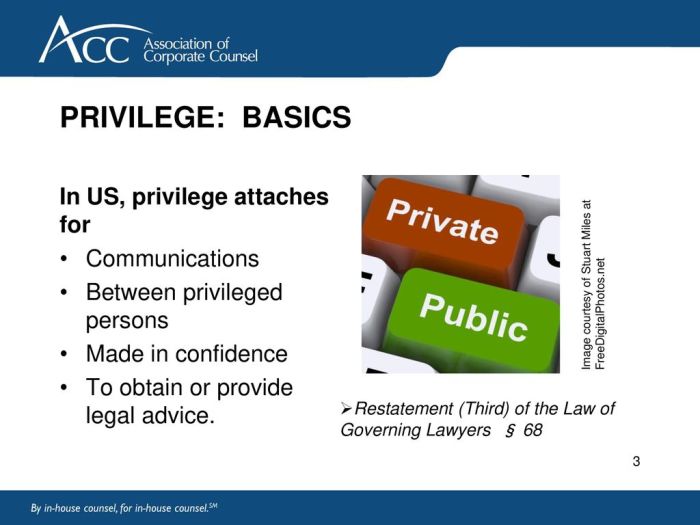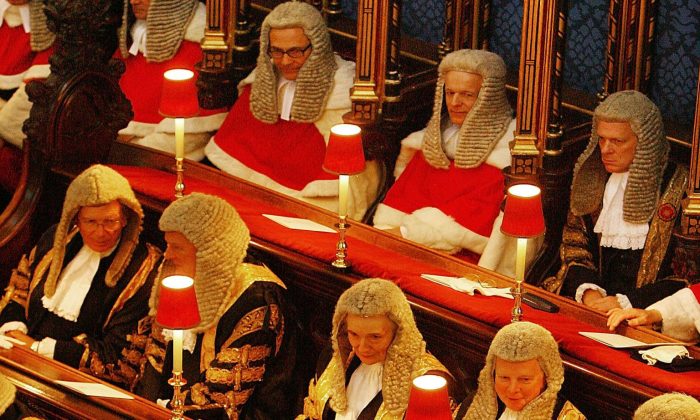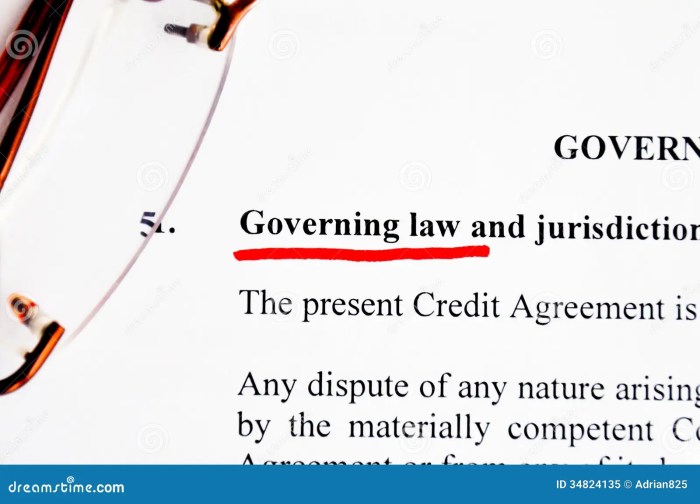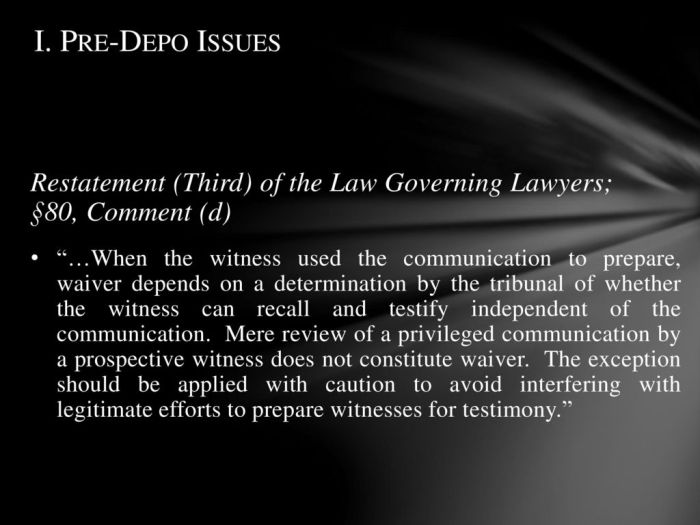The Restatement of Law Governing Lawyers serves as a foundational document that codifies the ethical and legal principles guiding the conduct of attorneys. This comprehensive guide delves into the intricacies of lawyer-client relationships, conflicts of interest, confidentiality, fee arrangements, and professional responsibility, providing invaluable insights for legal practitioners.
Established by the American Law Institute, the Restatement offers a structured framework for understanding the duties and obligations of lawyers, ensuring adherence to the highest ethical standards and safeguarding the integrity of the legal profession.
Restatement of Law Governing Lawyers

The Restatement of Law Governing Lawyers is a comprehensive and authoritative statement of the law governing lawyers in the United States. It was developed by the American Law Institute (ALI) over a period of more than 20 years, and was first published in 2000. The Restatement is intended to provide guidance to lawyers, judges, and other legal professionals on the ethical and legal duties of lawyers.
Purpose
The Restatement of Law Governing Lawyers has several purposes. First, it provides a comprehensive and up-to-date statement of the law governing lawyers. Second, it promotes uniformity in the law governing lawyers by providing a single, authoritative source of information on the subject.
Third, it serves as a teaching tool for law students and lawyers.
History, Restatement of law governing lawyers
The Restatement of Law Governing Lawyers was first published in 2000. It is the third in a series of Restatements of the Law of Lawyers, the first of which was published in 1932. The Restatement is revised periodically to reflect changes in the law.
Structure and Organization
The Restatement of Law Governing Lawyers is divided into four parts:
- Part I: General Principles
- Part II: Duties to Clients
- Part III: Duties to Other Persons
- Part IV: Duties to the Legal System
Each part is divided into chapters, which are further divided into sections. The Restatement also includes a number of appendices, which provide additional information on specific topics.
Key Principles and Concepts
The Restatement of Law Governing Lawyers addresses a wide range of topics, including:
- The duties of lawyers to their clients
- The duties of lawyers to other persons
- The duties of lawyers to the legal system
- The ethical rules governing lawyers
- The discipline of lawyers
The Restatement is a valuable resource for anyone who is interested in the law governing lawyers.
Duties to Clients

Lawyers have a fiduciary duty to their clients, which means they must act in their clients’ best interests. This duty includes the duty of loyalty, the duty of competence, and the duty of confidentiality.
Duty of Loyalty
The duty of loyalty requires lawyers to put their clients’ interests before their own. This means that lawyers must not represent clients with conflicting interests, and they must not use their clients’ confidential information for their own benefit.
There are a number of exceptions to the duty of loyalty. For example, lawyers may represent clients with conflicting interests if the clients consent after being fully informed of the conflict. Lawyers may also use their clients’ confidential information to prevent a crime or to defend themselves in a disciplinary proceeding.
Breaching the duty of loyalty can have serious consequences. Lawyers who breach this duty may be disbarred or suspended from practicing law. They may also be sued by their clients for damages.
Duty of Competence
The duty of competence requires lawyers to provide their clients with competent legal services. This means that lawyers must have the knowledge and skills necessary to handle their clients’ cases effectively.
There are a number of exceptions to the duty of competence. For example, lawyers are not required to be experts in all areas of law. They may refer clients to other lawyers who are more qualified to handle their cases.
Breaching the duty of competence can have serious consequences. Lawyers who breach this duty may be sued by their clients for damages. They may also be disbarred or suspended from practicing law.
Duty of Confidentiality
The duty of confidentiality requires lawyers to keep their clients’ confidential information secret. This means that lawyers cannot disclose their clients’ confidential information to anyone else without their clients’ consent.
There are a number of exceptions to the duty of confidentiality. For example, lawyers may disclose their clients’ confidential information to prevent a crime or to defend themselves in a disciplinary proceeding.
Breaching the duty of confidentiality can have serious consequences. Lawyers who breach this duty may be disbarred or suspended from practicing law. They may also be sued by their clients for damages.
Conflicts of Interest

Conflicts of interest arise when a lawyer’s personal or professional interests conflict with their duty to represent their client zealously and ethically. These conflicts can arise in various ways, such as when a lawyer represents multiple clients with opposing interests, has a financial stake in the outcome of a case, or has a personal relationship with a party involved in the matter.
To avoid and resolve conflicts of interest, lawyers must adhere to ethical rules and consider the following guidelines:
Identifying Conflicts of Interest
- Conduct thorough conflict checks before accepting representation.
- Be mindful of potential conflicts arising from personal relationships, financial interests, or past representation.
Disclosure and Consent
- Disclose potential conflicts of interest to clients promptly and in writing.
- Obtain informed consent from clients before proceeding with representation.
Avoiding Conflicts of Interest
- Decline representation if a conflict of interest cannot be resolved.
- Withdraw from representation if a conflict arises during the course of representation.
Resolving Conflicts of Interest
- Consult with an ethics advisor or experienced colleague.
- Consider seeking a waiver from the client or the court.
- Implement safeguards to mitigate the conflict, such as screening or limiting the scope of representation.
Confidentiality: Restatement Of Law Governing Lawyers

Confidentiality is a fundamental principle of the attorney-client relationship. It is essential for clients to be able to communicate openly and honestly with their lawyers without fear of their communications being disclosed to third parties. This privilege of confidentiality encourages clients to seek legal advice and allows lawyers to provide effective representation.
The attorney-client privilege is not absolute, however. There are a number of exceptions to the privilege, including:
- Communications that are made in furtherance of a crime or fraud
- Communications that are relevant to a client’s mental health and are necessary to determine the client’s competency to stand trial
- Communications that are made in the presence of a third party who is not a lawyer
- Communications that are disclosed to a lawyer for the purpose of obtaining legal advice for a third party
Lawyers have an ethical obligation to maintain the confidentiality of their clients’ communications. This obligation continues even after the attorney-client relationship has ended. Lawyers who violate their ethical obligations to maintain confidentiality may be subject to discipline by their state bar association.
Fee Arrangements

Lawyers have a variety of fee arrangements available to them, each with its own advantages and disadvantages. The most common types of fee arrangements are:
- Flat fee: A flat fee is a fixed amount that is charged for a specific service or project.
- Hourly rate: An hourly rate is a fee that is charged for each hour that the lawyer works on a case.
- Contingency fee: A contingency fee is a fee that is only charged if the lawyer is successful in obtaining a favorable outcome for the client.
- Retainer fee: A retainer fee is a fee that is paid in advance to secure the lawyer’s services.
The ethical considerations that govern fee arrangements are set forth in the Rules of Professional Conduct. These rules require lawyers to:
- Charge a reasonable fee.
- Disclose the fee arrangement to the client in writing.
- Obtain the client’s informed consent to the fee arrangement.
- Avoid conflicts of interest.
When negotiating a fee agreement, it is important to consider the following factors:
- The complexity of the case.
- The lawyer’s experience and reputation.
- The client’s financial situation.
It is also important to document the fee agreement in writing. The fee agreement should include the following information:
- The type of fee arrangement.
- The amount of the fee.
- The payment terms.
- The scope of the services to be provided.
- The termination provisions.
Professional Responsibility

The legal profession is self-regulated, meaning that lawyers are responsible for upholding the ethical standards of their profession. These ethical obligations are designed to protect the public and ensure that lawyers act in a manner that is consistent with the highest standards of professionalism.
Bar Associations
Bar associations play a vital role in regulating the legal profession. They establish ethical rules, provide continuing legal education, and investigate complaints of misconduct. Bar associations also provide a forum for lawyers to discuss ethical issues and to develop best practices.
Consequences of Violating Ethical Rules
Violating ethical rules can have serious consequences for lawyers. These consequences can include:
- Disbarment
- Suspension
- Reprimand
- Censure
- Probation
- Restitution
- Fines
Common Queries
What is the purpose of the Restatement of Law Governing Lawyers?
The Restatement aims to provide a clear and concise statement of the governing principles of law applicable to lawyers, promoting ethical conduct and uniformity in legal practice.
What are the key duties that lawyers owe to their clients?
Lawyers have a duty of loyalty, competence, and confidentiality, requiring them to act in the best interests of their clients, provide competent legal services, and maintain the privacy of client communications.
How are conflicts of interest addressed in the Restatement?
The Restatement provides guidance on identifying and resolving conflicts of interest, emphasizing the importance of avoiding situations where a lawyer’s personal interests may compromise their ability to represent a client effectively.